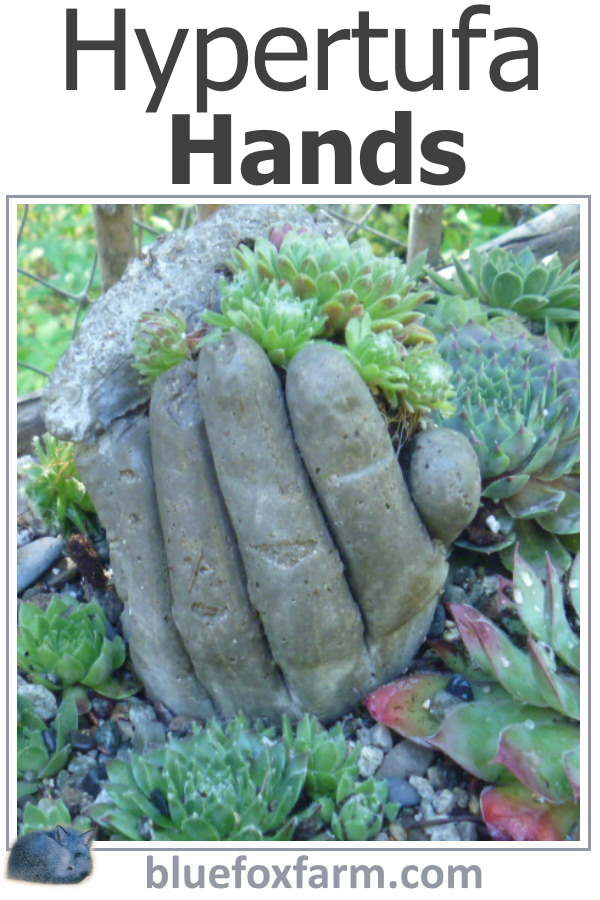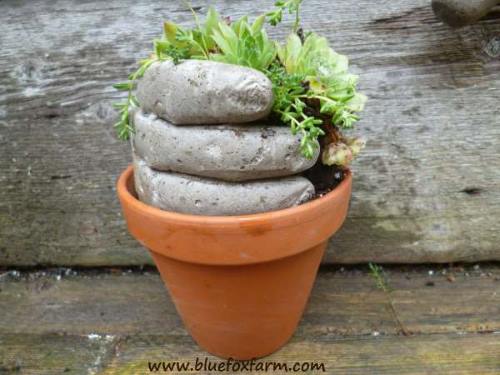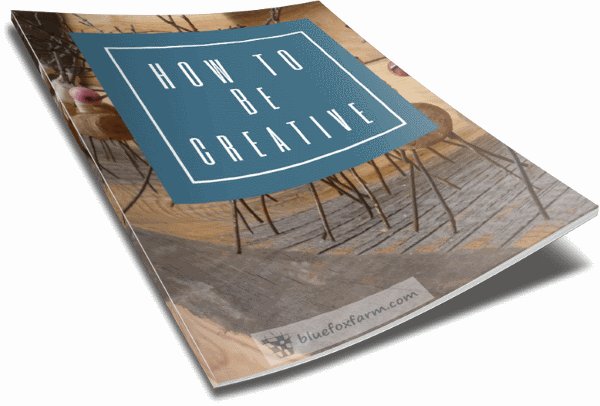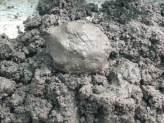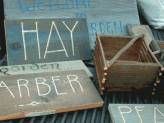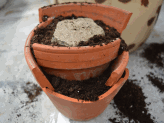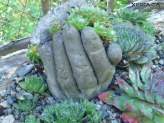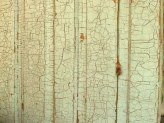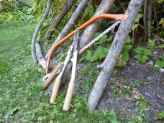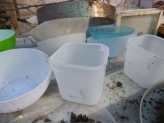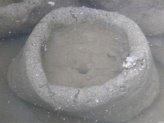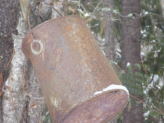Hypertufa Hands
Rustic Garden Art DIY
Making funky and fun garden art is a knack. I'm always finding things that can be taken to the next level, or designing something from scratch.
There are lots of ways that the hypertufa hands can be displayed, depending on what you use to form them.
These are either draped over a round item such as a bottle, or formed and left to harden inside a plastic plant pot.
Because I save everything, I have a lot of choices, from plastic containers like yogurt or cottage cheese containers, to clay pots.
This is one time that being a hoarder pays off.
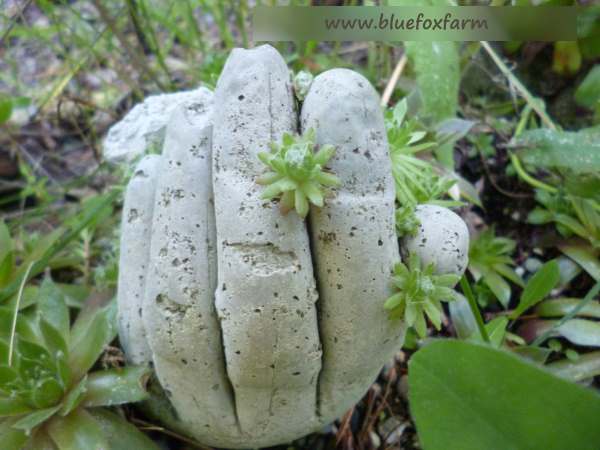 A tiny Sempervivum peeks out...
A tiny Sempervivum peeks out...As they weather, the moss will grow in the crevices, and eventually, in time, lichen could be happy there too.
These don't need any special winter care, except to keep them dry if possible.
There is nowhere for water to collect, which could freeze and crack, but they could break if they are immersed in water.
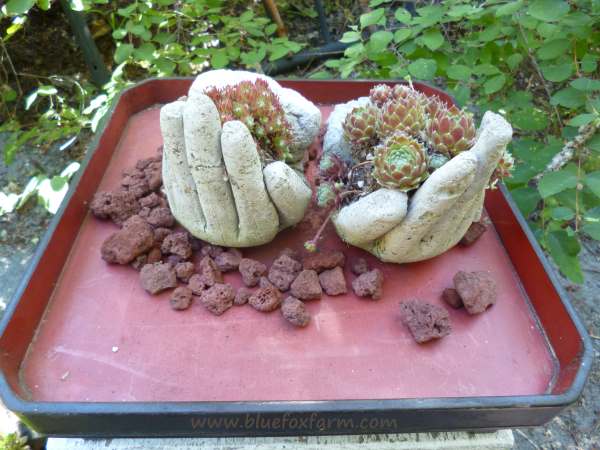 A Pair of Hypertufa Hands
A Pair of Hypertufa HandsThink whimsy; display them in a small terracotta pot, with a handful of plants like a bouquet, or group them in a tray.
The original hypertufa hand - where it all started. This one catches the imagination and gets everyone fired up!
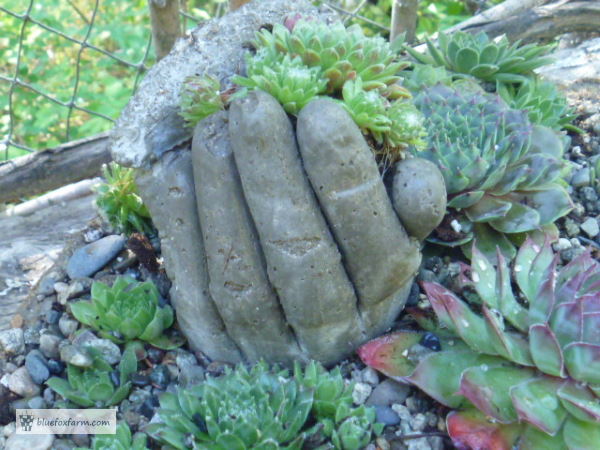 The Original Hypertufa Hand
The Original Hypertufa HandHow To Make Fingernails On Hypertufa Hands
Although none of my 'hands' have fingernails, it's something I've been asked about how to do, so here's what I would try.
Using thin cardboard, similar to greeting card weight, cut out some shapes similar to the picture.
You'll need different sizes for each finger, starting with the largest ones for the thumb, graduating to smaller ones for the other fingers, and a tiny one for the little finger.
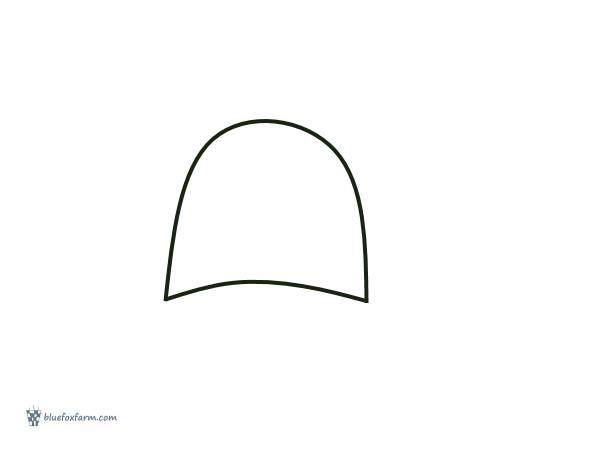
You'll need five for each hypertufa hand you make. Carefully dab a bit of glue on one side of each one, and insert it into the fingers of the glove. Stick it onto the end of the finger, on the correct side, inside the glove.
Make sure not to get glue all inside the finger!
Once the glue is dry, put the hypertufa mix in, and then put the whole thing into the mold to set the shape of it, curled like a real hand.
When you peel the gloves off, the shape of the cardboard finger nail will be impressed into the hypertufa.
If the cardboard sticks, leave it in water for a while (which you'll need to do anyway to cure it) so it soaks off.
I made several of these hypertufa hands, and displayed them as a group. They're planted with several different kinds of tiny species of Sempervivum.
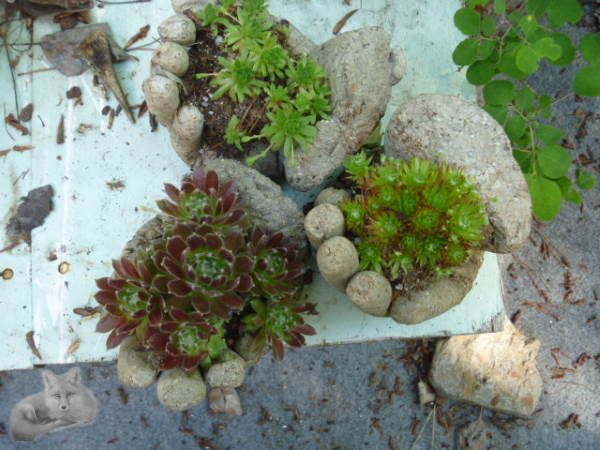 Top View of a Handful of Hypertufa Hands
Top View of a Handful of Hypertufa HandsThe Semps love well drained soil, and in this case, the water just runs out.
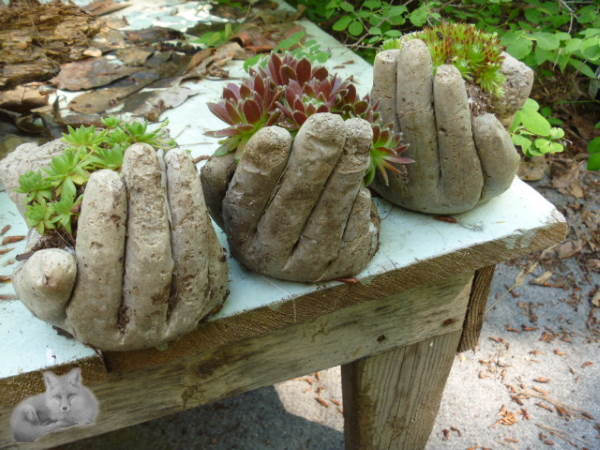 The view of the Hypertufa Hands from the side
The view of the Hypertufa Hands from the sideMake your own, and see what happens!
Learn what it takes to be creative - we all have the gene but how do we develop it? Get the free guide!
Fill in the form below for your copy;
(Don't be disappointed - use an email address that will accept the free download - some .aol email addresses won't.
If you don't see your download within a few minutes, try again with another email address - sorry for the bother.)
